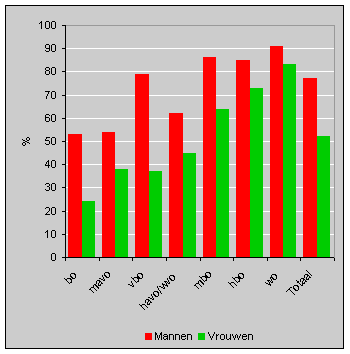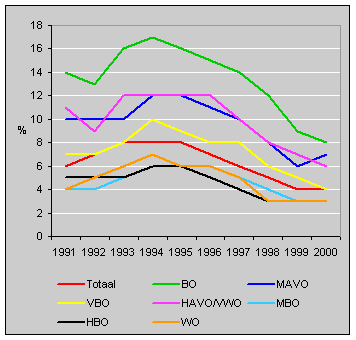High labour participation rates for university graduates

Nearly nine out of ten Dutch university graduates had a job in 2000. For people with the lowest levels of education, only primary school, this was fewer than four in ten. Although in the main differences in labour participation rates have hardly changed in the last ten years, people with a second-stage secondary level diploma (havo and vwo) are an exception. Their labour participation rose from 41% in 1991 to 54% in 2000.
Labour participation among women was lower than among men for all levels of education, although the differences are only small between men and women with a university degree. The largest differences in participation are for people with only primary school and those with a first-stage vocational diploma (vbo).
Net labour participation, men and women aged 15-64 years, 2000

Unemployment by level of education
Unemployment among people with a vbo, havo or vwo level of education has fallen strongly since 1991. For people with an mbo diploma (second-stage vocational training) and those with a university degree, the group with the lowest rate of unemployment, unemployment fell by only one percent point in the nineties. In spite of the drop in the number of workers with only primary school education, unemployment in this group was still high in 2000. People with an mbo diploma had the highest level of participation, along with those who had completed vocational college and university.
Age group 15-64 years by unemployment rate and level of education

Sabine Lucassen